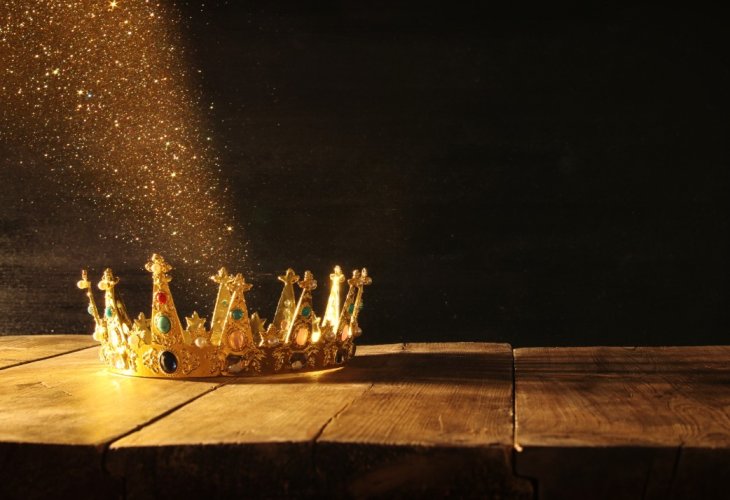Torah Personalities
King Shlomo: The Rise, Wisdom, and Challenge of Israel’s Most Enigmatic Monarch
A brilliant ruler and builder of the Temple, King Shlomo's legacy remains a blend of unmatched wisdom, political power, and deep spiritual complexity
 (Photo: Shutterstock)
(Photo: Shutterstock)The Child King Who Ruled the World
King Shlomo, son of David and Batsheva, was born in the Jewish year 2912. At just twelve years old, he was crowned king during his father’s lifetime, a rare move driven by political urgency. David, following Batsheva’s plea, ordered Natan the prophet and Tzadok the kohen (priest) to anoint Shlomo in response to Adoniyahu’s attempt to seize the throne (Melachim I 1:34).
From those early days, Shlomo's reign stood out. The Talmud (Megillah 11a) says he ruled over the entire world. Yet his kingship faced strange challenges: Gittin (68b) tells how Ashmedai, king of the demons, temporarily took over his throne. Whether Shlomo regained it is debated.
Still, he left a lasting legacy as the builder of the Temple and the author of Kohelet, Mishlei, and Shir HaShirim. The Rambam (Maimonides), at the start of Sanhedrin chapter 10, writes that the future Mashiach will descend from Shlomo, continuing the line of King David.
When Wisdom Met Law and Heaven Responded
Shlomo was known as the wisest man who ever lived (Melachim I 5:11). But he wasn’t only a philosopher and poet. He was a halachic (Jewish legal) innovator, too.
He established several important rabbinic enactments:
Netilat Yadayim (ritual hand washing) for sacred foods
The blessing of "Who builds Jerusalem" (together with his father, King David) and the formulation “on the great and Holy Temple” (Berachot 48b)
When he made these decrees, the Talmud says a heavenly voice called out: “My son, if your heart is wise, My heart too will rejoice” (Eruvin 21b).
A Royal Mistake: Silence in the Face of Idolatry
As his power grew, Shlomo married many foreign wives—700 wives and 300 concubines—often royalty, to forge international peace treaties. But some of them did not fully convert, and others continued to worship idols. Shlomo didn’t participate in idolatry himself, but the prophet criticizes him for failing to stop it (Melachim I 11:7).
Though at face value, these marriages and the pagan practices of Shlomo's wives are perplexing, it is instructive to note that the Talmud states: “Anyone who says Shlomo sinned is mistaken” (Shabbat 56b). Kabbalistic sources explain that Shlomo attempted to spiritually elevate the nations too early and tried to “raise the sparks” scattered among the nations of the world before the time was right. He failed not in intention, but in execution.
Rashi and the Metzudat David both explain that the phrase “Shlomo built a high place (bama) for Chemosh” (Melachim I 11:7) does not mean that he personally built an altar for idolatry, but rather that he was held accountable for letting it happen.
As a result, Hashem tells him: “Because you didn’t keep My covenant... I will tear the kingdom from you—not in your lifetime, for the sake of David your father, but from your son” (Melachim I 11:11–13).
Two Wives, Two Nations, Two Futures
Only two of Shlomo’s wives are named: Bat Pharaoh and Naamah the Ammonite.
Bat Pharaoh, the daughter of the Egyptian king, is never called by name, just “Bat Pharaoh.” Her marriage to Shlomo was a political alliance. He received the city of Gezer from Pharaoh as a dowry and built her a grand palace. The sages saw this union as spiritually dangerous. In Sanhedrin (21b), it says this marriage sparked future tragedy, even associating it with the birth of Rome.
Naamah, by contrast, is praised in the Talmud. She was the mother of Rechavam, Shlomo’s heir, and is mentioned by name. In Bava Kama (38b), the rabbis describe her and Ruth as “two precious offspring” who brought strength to the Davidic line. The Arizal teaches that this spiritual blending added powerful traits needed for kingship.
Still, the prophet makes no attempt to hide the risks inherent to these marriages. Shlomo is held accountable not for betrayal, but for failing to protest.
Greatness and Fragility: The Legacy of Shlomo
Under Shlomo’s rule, Israel experienced its heyday in terms of size, power, and fame. Nations came to learn from his wisdom. The Temple stood in Jerusalem. But when he died, the kingdom split. His son Rechavam ruled only part of the people, while Yeravam took the rest.
King Shlomo’s life is not easily summed up. He was wise beyond measure, beloved by Hashem, and guided by prophecy. At the same time, he also made grave errors of leadership. His story is a reminder that even the greatest souls are not immune to spiritual risk.

